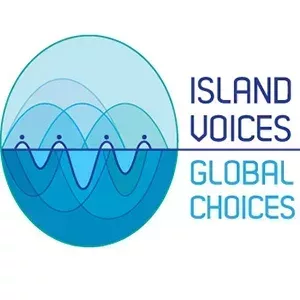The Third International Conference on Small Island Developing States (SIDS) took place from 1-4 September 2014, in Apia, Samoa, on the theme of “The Sustainable Development of SIDS Through Genuine and Durable Partnerships.” The Conference produced an outcome document, titled “SIDS Accelerated Modalities of Action (SAMOA) Pathway,” which was negotiated during the preparatory process at UN Headquarters in New York, US, and adopted during the closing plenary.
The SAMOA Pathway (A/CONF.223/3) reaffirms that SIDS remain a special case for sustainable development, recognizing SIDS’s ownership and leadership in overcoming these challenges. It addresses the following issues: sustained and sustainable, inclusive and equitable economic growth with decent work for all; climate change; sustainable energy; disaster risk reduction (DRR); oceans and seas; food security and nutrition; water and sanitation; sustainable transport; sustainable consumption and production (SCP); health and non-communicable diseases (NCDs); gender equality and women’s empowerment; social development; biodiversity, including desertification, land degradation, drought and forests; invasive alien species (IAS); means of implementation, including partnerships, financing, trade, capacity-building, technology, data and statistics, and institutional support for SIDS; SIDS priorities for the post-2015 agenda; and monitoring and accountability. The paragraph 58 recognized the importance of the International Coral Reef Initiative and its Framework for Action:
58. With this in mind we strongly support action to:
e) Undertake urgent action to protect coral reefs and other vulnerable marine ecosystems through the development and implementation of comprehensive and integrated approaches for the management and the enhancement of their resilience to withstand pressures, including from ocean acidification and invasive species, and by drawing on measures such as those identified in the International Coral Reef Initiative Framework for Action 2013.
Aside from paragraph 58 above, the draft outcome repeatedly addresses the importance of protecting the marine ecosystems and biodiversity and achieving sustainable development.
In addition, many countries and organizations announced new pledges and partnerships at the Conference, with the aim of boosting SIDS’ capacity to achieve sustainable development. By the close of the meeting, 297 partnerships were recorded. In his closing remarks, Conference Secretary-General Wu Hongbo said the UN Department of Economic and Social Affairs (DESA) has been entrusted to monitor commitments, pledges and partnerships made in Samoa, and will report to the UN General Assembly (UNGA) on progress made. He said the UN family will redouble its efforts to provide coordinated support to SIDS, and offered assurances that SIDS concerns will feed into the Financing for Development (FfD) Conference in Addis Ababa, Ethiopia, in 2015.
In parallel with plenary discussions, six multi-stakeholder Partnership Dialogues took place on the themes of: sustainable economic development; climate change and disaster risk management (DRM); social development, health and NCDs, youth and women; sustainable energy; oceans, seas and biodiversity; and water and sanitation, food security and waste management. Forums organized by youth, Major Groups and other Stakeholders, the renewable energy sector and the private sector took place prior to the conference.
